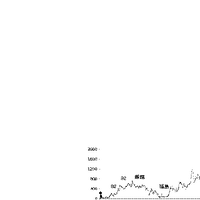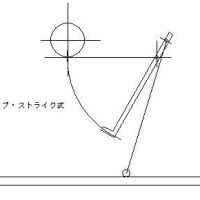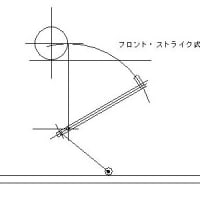http://www.archive.org/details/principleseconom01milluoft
Internet Archive: Details: Principles of political economy : with some of their applications to social philosophy
-----------------------------------------------------
LAW OF THE INCREASE OF CAPITAL. 215
When a country has carried production as far as in the
existing state of knowledge it can be carried with an amount
of return corresponding to the average strength of the effec
tive desire of accumulation in that country, it has reached
what is called the stationary state ; the state in which no
further addition will be made to capital, unless there takes
place either some improvement in the arts of production, or
an increase in the strength of the desire to accumulate. In
the stationary state, though capital does not on the whole
increase, some persons grow richer and others poorer. Those
whose degree of providence is below the usual standard,
become impoverished, their capital perishes, and makes room
for the savings of those whose effective desire of accumulation
exceeds the average. These become the natural purchasers
of the lands, manufactories, and other instruments of produc
tion owned by their less provident countrymen.
What the causes are which make the return to capital
greater in one country than in another, and which, in certain
circumstances, make it impossible for any additional capital
to find investment unless at diminished returns, will appear
clearly hereafter. In China, if that country has really at
tained, as it is supposed to have done, the stationary state,
accumulation has stopped when the returns to capital are
still as high as is indicated by a rate of interest legally twelve
per cent, and practically varying (it is said) between eighteen
and thirty-six. It is to be presumed therefore that no greater
amount of capital than the country already possesses, can find
employment at this high rate of profit, and that any lower
rate does not hold out to a Chinese sufficient temptation to
induce him to abstain from present enjoyment. What a
contrast with Holland, where, during the most flourishing
216 BOOK I. CHAPTER XI. 4.
period of its history, the government was able habitually to
borrow at two per cent, and private individuals, on good
security, at three. Since China is not a country like Burrnah
or the native states of India, where an enormous interest is
but an indispensable compensation for the risk incurred from
the bad faith or poverty of the state, and of almost all private
borrowers ; the fact, if fact it be, that the increase of capital
has come to a stand while the returns to it are still ,so large,
denotes a much less degree of the effective desire of accu
mulation, in other words a much lower estimate of the
future relatively to the present, than that of most European
nations.
-------------------------------
BOOK II. CHAPTER IX. 2.
proves that full advantage is not taken by the landlord of
even that more limited competition, since the landlord s rent
does not amount to the whole of what the incoming tenant
not only offers but actually pays. He does so in the full
confidence that the rent will not be raised ; and for this he
has the guarantee of a custom, not recognised by law, but
deriving its binding force from another sanction, perfectly
well understood in Ireland.* Without one or other of these
supports, a custom limiting the rent of land is not likely
to grow up in any progressive community. If wealth and
population were stationary, rent also would generally be
stationary, and after remaining a long time unaltered, would
probably come to be considered unalterable. But all pro
gress in wealth and population tends to a rise of rents.
Under a metayer system there is an established mode in
which the owner of land is sure of participating in the
increased produce drawn from it. But on the cottier system
he can only do so by a readjustment of the contract, while
that readjustment, in a progressive community, would almost
always be to his advantage. His interest, therefore, is de
cidedly opposed to the growth of any custom commuting rent
into a fixed demand.
-------------------------------
426 BOOK II. CHAPTER XI. 2
labourers question, or to any of the schemes, of which some
one or other is at all times in vogue, for making the labourers
a very little better off. Things which only affect them a very
little, make no permanent impression upon their hahits and
requirements, and they soon slide back into their former
state. To produce permanent advantage, the temporary
cause operating upon them must he sufficient to make a great
change in their condition a change such as will be felt for
many years, notwithstanding any stimulus which it may give
during one generation to the increase of people. When,
indeed, the improvement is of this signal character, and a
generation grows up which has always been used to an im
proved scale of comfort, the habits of this new generation in
respect to population become formed upon a higher mini
mum, and the improvement in their condition becomes per
manent. Of cases in point, the most remarkable is France
after the Revolution. The majority of the population being
suddenly raised from misery, to independence and compara
tive comfort; the immediate effect was that population, not
withstanding the destructive wars of the period, started
forward with unexampled rapidity, partly because improved
circumstances enabled many children to be reared who would
otherwise have died, and partly from increase of births. The
succeeding generation however grew up with habits consider
ably altered ; and though the country was never before in so
prosperous a state, the annual number of births is now nearly
stationary,* and the increase of population extremely slow.f
* Supra, pp. 359 to 363.
t A similar, though not an equal improvement in the standard of living
took place among the labourers of England during the remarkable fifty years
from 1715 to 1765, which were distinguished by such an extraordinary suc
cession of fine harvests (the years of decided deficiency not exceeding five in all
that period) that the average price of wheat during those years was much
lower than during the previous half century. Mr. Malthus computes that on
the average of sixty years preceding 1720, the labourer could purchase with a
day s earnings only two- thirds of a peck of wheat, while from 1720 to 1750 he
WAGES. 427
Internet Archive: Details: Principles of political economy : with some of their applications to social philosophy
-----------------------------------------------------
LAW OF THE INCREASE OF CAPITAL. 215
When a country has carried production as far as in the
existing state of knowledge it can be carried with an amount
of return corresponding to the average strength of the effec
tive desire of accumulation in that country, it has reached
what is called the stationary state ; the state in which no
further addition will be made to capital, unless there takes
place either some improvement in the arts of production, or
an increase in the strength of the desire to accumulate. In
the stationary state, though capital does not on the whole
increase, some persons grow richer and others poorer. Those
whose degree of providence is below the usual standard,
become impoverished, their capital perishes, and makes room
for the savings of those whose effective desire of accumulation
exceeds the average. These become the natural purchasers
of the lands, manufactories, and other instruments of produc
tion owned by their less provident countrymen.
What the causes are which make the return to capital
greater in one country than in another, and which, in certain
circumstances, make it impossible for any additional capital
to find investment unless at diminished returns, will appear
clearly hereafter. In China, if that country has really at
tained, as it is supposed to have done, the stationary state,
accumulation has stopped when the returns to capital are
still as high as is indicated by a rate of interest legally twelve
per cent, and practically varying (it is said) between eighteen
and thirty-six. It is to be presumed therefore that no greater
amount of capital than the country already possesses, can find
employment at this high rate of profit, and that any lower
rate does not hold out to a Chinese sufficient temptation to
induce him to abstain from present enjoyment. What a
contrast with Holland, where, during the most flourishing
216 BOOK I. CHAPTER XI. 4.
period of its history, the government was able habitually to
borrow at two per cent, and private individuals, on good
security, at three. Since China is not a country like Burrnah
or the native states of India, where an enormous interest is
but an indispensable compensation for the risk incurred from
the bad faith or poverty of the state, and of almost all private
borrowers ; the fact, if fact it be, that the increase of capital
has come to a stand while the returns to it are still ,so large,
denotes a much less degree of the effective desire of accu
mulation, in other words a much lower estimate of the
future relatively to the present, than that of most European
nations.
-------------------------------
BOOK II. CHAPTER IX. 2.
proves that full advantage is not taken by the landlord of
even that more limited competition, since the landlord s rent
does not amount to the whole of what the incoming tenant
not only offers but actually pays. He does so in the full
confidence that the rent will not be raised ; and for this he
has the guarantee of a custom, not recognised by law, but
deriving its binding force from another sanction, perfectly
well understood in Ireland.* Without one or other of these
supports, a custom limiting the rent of land is not likely
to grow up in any progressive community. If wealth and
population were stationary, rent also would generally be
stationary, and after remaining a long time unaltered, would
probably come to be considered unalterable. But all pro
gress in wealth and population tends to a rise of rents.
Under a metayer system there is an established mode in
which the owner of land is sure of participating in the
increased produce drawn from it. But on the cottier system
he can only do so by a readjustment of the contract, while
that readjustment, in a progressive community, would almost
always be to his advantage. His interest, therefore, is de
cidedly opposed to the growth of any custom commuting rent
into a fixed demand.
-------------------------------
426 BOOK II. CHAPTER XI. 2
labourers question, or to any of the schemes, of which some
one or other is at all times in vogue, for making the labourers
a very little better off. Things which only affect them a very
little, make no permanent impression upon their hahits and
requirements, and they soon slide back into their former
state. To produce permanent advantage, the temporary
cause operating upon them must he sufficient to make a great
change in their condition a change such as will be felt for
many years, notwithstanding any stimulus which it may give
during one generation to the increase of people. When,
indeed, the improvement is of this signal character, and a
generation grows up which has always been used to an im
proved scale of comfort, the habits of this new generation in
respect to population become formed upon a higher mini
mum, and the improvement in their condition becomes per
manent. Of cases in point, the most remarkable is France
after the Revolution. The majority of the population being
suddenly raised from misery, to independence and compara
tive comfort; the immediate effect was that population, not
withstanding the destructive wars of the period, started
forward with unexampled rapidity, partly because improved
circumstances enabled many children to be reared who would
otherwise have died, and partly from increase of births. The
succeeding generation however grew up with habits consider
ably altered ; and though the country was never before in so
prosperous a state, the annual number of births is now nearly
stationary,* and the increase of population extremely slow.f
* Supra, pp. 359 to 363.
t A similar, though not an equal improvement in the standard of living
took place among the labourers of England during the remarkable fifty years
from 1715 to 1765, which were distinguished by such an extraordinary suc
cession of fine harvests (the years of decided deficiency not exceeding five in all
that period) that the average price of wheat during those years was much
lower than during the previous half century. Mr. Malthus computes that on
the average of sixty years preceding 1720, the labourer could purchase with a
day s earnings only two- thirds of a peck of wheat, while from 1720 to 1750 he
WAGES. 427


























